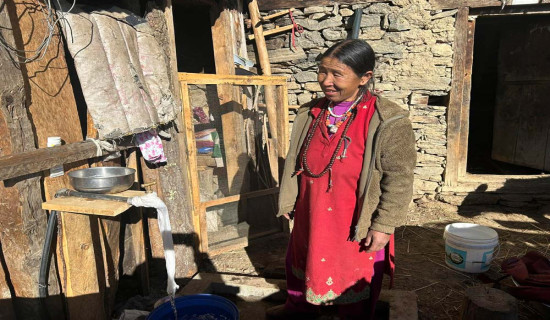- Monday, 15 December 2025
Ways To Embrace Healthy Aging
Our lifespan is longer than it has ever been. Globally, life expectancy has significantly improved due to advancements in sanitation, nutrition, and medicine. However, living well does not equate to living longer. Life to years, not merely years to life, is the key. Staying active, involved, and healthy for as long as possible is the essence of healthy aging.
Although aging is an inescapable aspect of life, one of the most misunderstood and ignored topics in contemporary society is how we age. Many people associate growing older with being weak, unwell, and socially isolated. However, growing older need not be a gradual decrease. If embraced with the appropriate attitude and behaviours, it may be a period of wisdom, vigour, purpose, and progress. Healthy aging needs to be more than just a catchphrase in public health; it needs to be a personal goal, a cultural movement, and a top priority for policy.
Regretfully, a large portion of the population still sees aging as a sign of decline. People fear wrinkles. Gray hair is removed using dye. These misconceptions deprive society at large and older persons in particular of the enormous value that comes with age, such as perspective, experience, and emotional intelligence.
Health span
The difference between life span and health span is crucial when discussing aging. Health span is the number of years that a person lives in good health, that is, without chronic illnesses or disabilities, whereas life span is the total number of years lived. In many regions of the world, life expectancy is outpacing health expectancy. Even if a person lives into their 80s or 90s, they may spend the last decades of their lives fighting avoidable diseases, becoming dependent on medicine, and becoming socially isolated.
Healthy aging is based on a number of fundamental principles. These consist of a supportive environment, social connection, mental and physical well-being, and a sense of purpose. All of them are interrelated and necessary. Perhaps the most crucial element in healthy aging is regular physical activity. In addition to maintaining bone density and strengthening the heart, exercise also lowers the risk of developing chronic conditions like diabetes and high blood pressure. It also improves mood and mental clarity.
Crucially, engaging in physical exercise doesn't necessitate rigorous workouts. Yoga, gardening, swimming, stretching, and walking can all have a big impact. Even with little weights, strength exercise can help older persons maintain their balance and muscle mass, which lowers their risk of injury and falls. Our dietary requirements evolve with age. Appetite may decrease as the body gets less effective at absorbing specific nutrients. It is crucial to eat a diet full of fruits, vegetables, whole grains, lean meats, and healthy fats. Being well hydrated is particularly essential because dehydration is more common in older persons.
Older individuals' mental health is frequently disregarded. Loneliness, anxiety, and depression are prevalent yet usually go untreated. These ailments need to be treated quickly and compassionately because they are not an inherent aspect of aging. One of the things that people fear most about aging is cognitive decline, which includes dementia and memory loss. Lifestyle decisions can have a big impact on brain function, even though some decrease may be normal. Reading, picking up new skills, playing games, or using technology can all provide mental stimulation that keeps the mind active. Additionally, stress-reduction techniques, mindfulness, and meditation can support older persons in maintaining emotional resilience and adjusting to life changes.
Keeping up meaningful relationships is crucial for both physical and mental well-being. Unfortunately, loneliness affects a lot of older persons, especially after retirement, when a spouse passes away, or when they have mobility problems. A feeling of purpose is perhaps the most underrated component of healthy aging. Life has meaning, direction, and joy when it has a purpose. Purpose enhances the aging process, whether it be by volunteering, mentoring, making art, engaging in hobbies, or taking care of grandchildren. Research indicates that a sense of purpose is linked to improved mental health, a longer life expectancy, and a decreased incidence of disease.
Accepting change
In order to see older persons as active, useful contributors rather than as burdens, society must assist them in discovering and expressing their purpose. The narrative surrounding aging needs to be challenged and altered. It's not a failure to get older. It's not a sickness. It is a lovely, natural process that has a lot of promise. Elderly people are leaders, inventors, and mentors rather than passive users of care. Staying young is not the goal of healthy aging. It entails accepting change while making every effort to stay resilient, united, and alive. It entails appreciating each phase of life and making thoughtful, deliberate plans for the future.
Growing older is a shared and individual experience as well as a biological one. In order to age well, we must respect our bodies, take care of our minds, cultivate relationships, and enjoy life in general. It takes work, empathy, encouragement, and a change of perspective about our later years. We can all do our part to age better tomorrow by taking action now. We as a culture need to make sure that growing older is viewed as a victory rather than a burden. After all, everyone has the right to age with honor, health, and contentment since it is a privilege.
(Dr. Lohani is the executive director at the Health Concern. lohanis@gmail.com)














